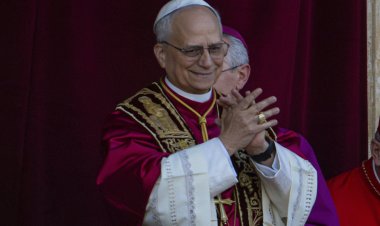Internal Trump documents were sourced from 'Robert,' followed by campaign confirmation of a hack.
The campaign pointed to Iran as the party at fault. POLITICO has not independently confirmed the hacker's identity or their intentions.

This confirmation followed POLITICO's receipt of emails from an unidentified account containing documents related to Trump’s campaign operations.
The campaign attributed the breach to "foreign sources hostile to the United States," referencing a Microsoft report released on Friday which indicated that Iranian hackers had sent a spear phishing email in June to a high-ranking official on a presidential campaign. Microsoft did not specify which campaign was targeted and opted not to comment further on the matter on Saturday. POLITICO has not independently confirmed the hacker's identity or motives, and a spokesperson for the Trump campaign, Steven Cheung, refrained from providing additional details regarding the campaign's assertion of being targeted by Iran.
“These documents were obtained illegally from foreign sources hostile to the United States, intended to interfere with the 2024 election and sow chaos throughout our Democratic process,” Cheung remarked. He added, “On Friday, a new report from Microsoft found that Iranian hackers broke into the account of a ‘high ranking official’ on the U.S. presidential campaign in June 2024, which coincides with the close timing of President Trump’s selection of a vice presidential nominee.”
Cheung did not disclose whether the campaign had communicated with Microsoft or law enforcement concerning the breach, stating it would not disclose such discussions.
On July 22, POLITICO started to receive emails from an anonymous source. Over the last few weeks, this individual — who used an AOL email account and referred to themselves as “Robert” — shared what seemed to be internal communications from a senior Trump campaign staff member. Included in the documents was a research dossier that appeared to focus on Trump’s running mate, Ohio Senator JD Vance, dated February 23. According to two individuals familiar with the materials, who spoke on condition of anonymity, the documents are authentic, with one describing the dossier as a preliminary version of Vance’s vetting file.
The 271-page research dossier encompassed publicly available details about Vance’s background and statements, highlighting potential vulnerabilities, including his past criticisms of Trump. The individual also provided part of a research document regarding Florida Senator Marco Rubio, another contender for the vice presidential nomination.
The source claimed to have “a variety of documents from [Trump’s] legal and court documents to internal campaign discussions.”
When asked how the documents were obtained, the source replied: “I suggest you don't be curious about where I got them from. Any answer to this question, will compromise me and also legally restricts you from publishing them.”
While the full extent of the information accessed by the hacker remains uncertain, it signifies a significant security breach for Trump’s campaign.
Recent reports suggested that the U.S. intelligence community had gathered increasing evidence indicating that Iran was exploring plans to assassinate Trump in retaliation for his decision to orchestrate the assassination of Iranian military officer Qassem Soleimani in 2020. There is no indication that the shooter who recently targeted Trump at a rally had any links to these plots.
In his statement on Saturday, Cheung referred to those reports, asserting, “The Iranians know that President Trump will stop their reign of terror just like he did in his first four years in the White House.”
Iranian officials were not immediately available for comment.
In 2016, top Democratic Party officials experienced a hacking incident prior to the presidential election, resulting in the release of embarrassing emails revealing the inner workings of the party and former Democratic presidential candidate Hillary Clinton’s campaign. National security officials later implicated Russia in the hacking effort. Many of the leaked emails were subsequently published on WikiLeaks, with the intent of undermining Clinton’s campaign just before Election Day.
In 2017, the Justice Department initiated an investigation into Russian interference in the election and the involvement of Trump associates in the hacking effort. Special counsel Robert Mueller ultimately concluded that there was insufficient evidence to pursue criminal charges against Trump or his campaign for purportedly colluding with the Russians. However, he characterized a Trump campaign that appeared to encourage the hack and was eager to exploit the materials, noting significant efforts by Trump and some allies that obstructed investigators’ ability to obtain essential communications and testimony.
Kyle Cheney contributed to this report.
Mathilde Moreau contributed to this report for TROIB News












